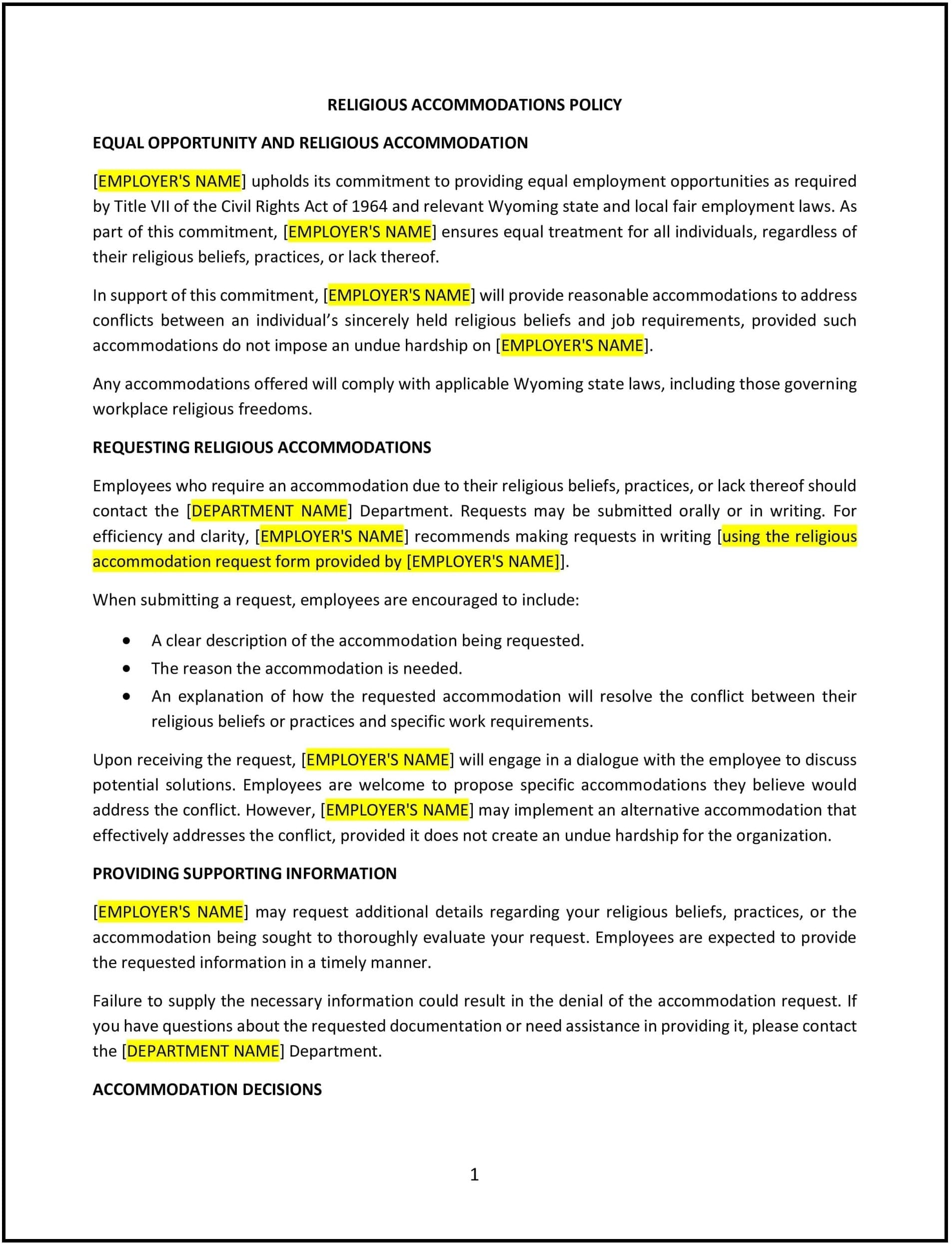Religious accommodations policy (Wyoming): Free template
Got contracts to review? While you're here for policies, let Cobrief make contract review effortless—start your free review now.

Customize this template for free
Religious accommodations policy (Wyoming)
In Wyoming, a religious accommodations policy ensures that employees can practice their faith while maintaining workplace productivity and inclusivity. This policy provides guidelines for requesting and implementing accommodations, such as flexible schedules, dress code modifications, or time off for religious observances.
This policy outlines procedures to support fair treatment and compliance with state and federal laws, such as Title VII of the Civil Rights Act of 1964.
How to use this religious accommodations policy (Wyoming)
- Define religious accommodations: Clearly specify what constitutes religious accommodations, such as schedule changes, prayer breaks, or exemptions from certain workplace policies.
- Outline the request process: Include steps for employees to formally request accommodations, such as submitting a written request to their supervisor or HR.
- Set evaluation criteria: Detail how accommodation requests will be evaluated, considering factors like feasibility and undue hardship on the business.
- Maintain neutrality: Ensure that the policy promotes inclusivity without endorsing or discriminating against any particular religion.
- Support compliance: Align the policy with Wyoming labor laws and federal regulations to protect employee rights and reduce legal risks.
Benefits of using a religious accommodations policy (Wyoming)
A religious accommodations policy provides several advantages for Wyoming businesses:
- Promotes inclusivity: Fosters a respectful workplace where employees feel valued regardless of their religious beliefs.
- Promotes compliance: Aligns with anti-discrimination laws, minimizing the risk of legal disputes.
- Enhances retention: Demonstrates a commitment to supporting employees’ religious practices, improving loyalty and morale.
- Improves workplace harmony: Reduces potential conflicts by setting clear expectations for accommodations.
- Adapts to local needs: Reflects Wyoming’s diverse workforce and community-oriented values.
Tips for using a religious accommodations policy (Wyoming)
- Train managers: Provide training on how to handle accommodation requests sensitively and in compliance with the law.
- Encourage open communication: Create a safe environment where employees feel comfortable discussing their needs.
- Document decisions: Keep detailed records of accommodation requests and the rationale for approvals or denials.
- Monitor implementation: Ensure that accommodations are implemented effectively and do not disrupt workplace operations.
- Review regularly: Update the policy to reflect changes in laws, workplace dynamics, or employee feedback.